
Fractal Architect 4 Help Index

Applies to:FA 4
New feature of Fractal Architect 4 !
Reference: Animation Concepts
Reference: Animation Segment Configurator
The first uses the Triangle Editor to edit the From and To Endpoints. If you are proficient with the Triangle Editor, this may be the technique of choice for you. (Note: you must CLOSE the Triangle Editor before the parameter animation value ranges are captured.)
The second uses the Configurator’s Outline view to choose parameters and set their From/To value range.
You can switch back and forth between the two techniques.

The Configurator has a From/To Editors button that shows all keyframes and the From / To endpoint thumbnails.
You can edit the From / To Endpoints with Triangle/Color Gradient editor to setup the animation segment endpoints.
The Animation Configurator has 4 fractal thumbnails that you can modify.
Keyframe 1
From Endpoint
To Endpoint
Keyframe 2 (Only available for Cross-Breeder Custom Animations)
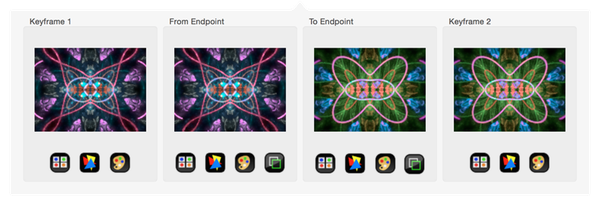
To define an animation segment, you would open 2 Triangle editor windows, one for the the From Endpoint and one for the To Endpoint.
When you CLOSE both editors, the differences between the two fractals will be used by the Animation configurator to create the equivalent Animation segment.
Choosing Parameters to Animate
The first task is to select a parameter that you wish to animate. It can be tricky to find which outline row the parameter resides. This link shows a chart with the Outline view level breakdown and which parameters reside in each row:
For example, lets assume we want to animate the Camera Yaw parameter. Looking at the chart we see that parameter is in the Fractal > Parameters & Final Xform > Parameters row.
So click the + button to add a new parameter to set its animation value range.
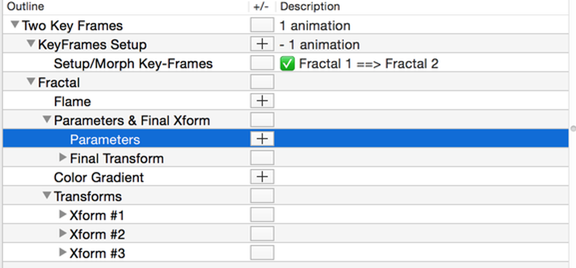
Select Camera Yaw from the popup menu.
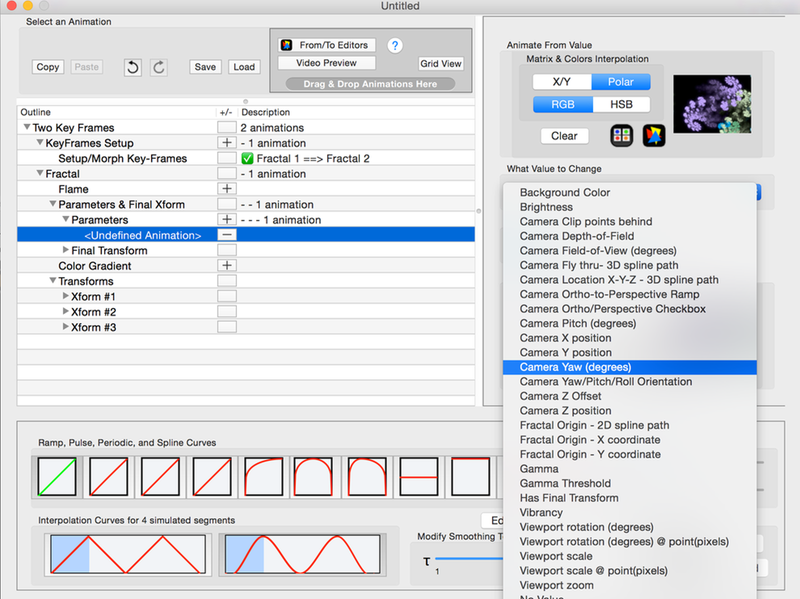
Finally edit the yaw parameter to have the range 0 to 180 degrees.
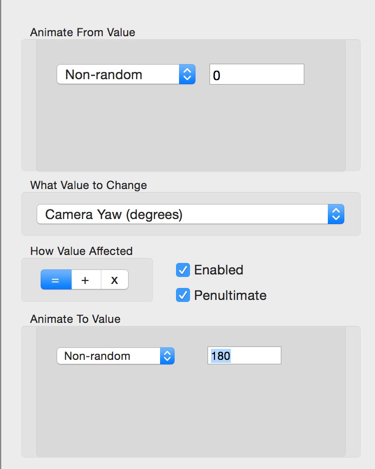
The Outline View shows animation setting.

Enabling/Disabling an Animation
You can disable an animation by unchecking the Enable checkbox. You might want to do this to see the affect of the animation. If you don’t like the animation you can of course remove it by clicking the - button on the animation’s row in the Outline view.
Tip 1: Open the Triangle Editor on the keyframes and use the Solo checkbox to see the affect of each Transform on the rendered image. You will find that some transforms contribute little to the image and others a lot.
Tip 2: Use the Variants Editor on the keyframes to find other interesting related fractals. Use the mouse and drag a good variant’s thumbnail over to the Animation Configurator’s Drag & Drop Animations Here and drop it. That will set up the animations so that with the animation slider set to full On (1.0), the last frame of the animation will look the same as the variant thumbnail image.
Tip 3: When working with the Sequencer, you can copy the animation segment (using Copy button on the configurator is one way), and paste it onto a multiple segment selection. That will create multiple copies of the segment.
Tip 4: Learn to copy animation segments from all over the app. You can then paste the animation segment here. See: Animation Source Material
You probably have figured this out by now: Making good animations is a lot of trial and error. Parameter value choices are usually educated guesses. To make it worse, every fractal is different and makes it very hard to predict the affect of a parameter change. So being able to quickly preview an animation is very important. The Video Preview is the best tool, but if you have a slower or older Mac you might want to try the alternative Run button which lets you create a set of thumbnails that can be assembled into a little video clip.
This windows allows you to see a video preview of the entire animation.
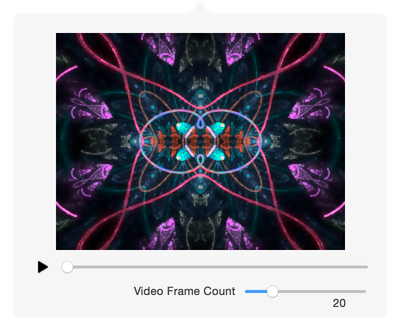
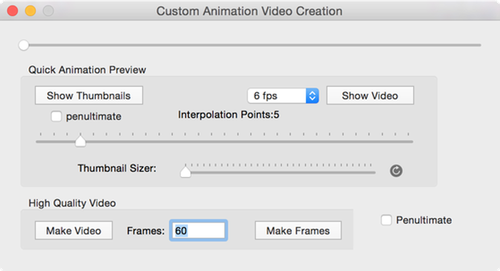
This window allows you to create a quick interpolation preview of the animation.
You can also make a High quality video using the Make Video or Make Frames buttons.
See: Quick-Spin for more information on how to use this window.
Use the Run button to open the Run Window. There you will find the tools to create high quality video clips.